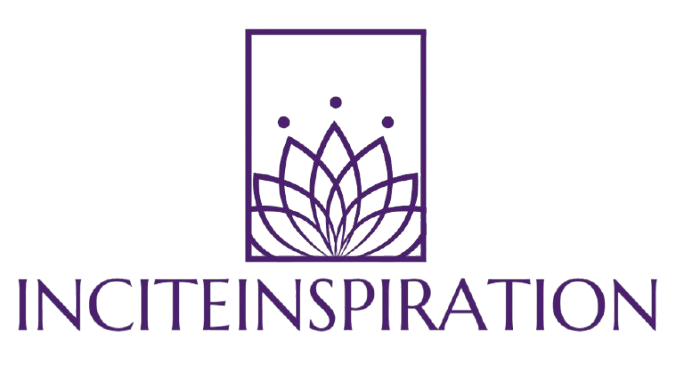We’ve all been there: standing in line at the checkout, a pile of clothes in our arms, caught in the excitement of a new purchase. For a moment, it feels like this addition will complete something missing in our lives. But what if, instead of seeking fulfillment through material possessions, we could find contentment by simply letting go in advance?
Every year, the average American tosses over 81 pounds of clothing, according to the EPA. The staggering truth is that 95% of these discarded garments could be reused or recycled. Yet, despite knowing this, we continue to buy more. More shirts, more shoes, more accessories—items that, in a short time, will end up as waste. Why do we keep accumulating more when we already have enough?
The answer lies in the core of consumerism. It’s the idea that purchasing more will somehow make our lives more complete. We’re bombarded by marketers, advertisers, and even social pressures, all urging us to buy, buy, buy. But what they don’t tell us is that this cycle of overconsumption isn’t making us happier or more fulfilled. It’s simply a distraction from the truth: we already have everything we need.
The Illusion of Consumerism
Consumerism thrives on the notion that the external—whether it’s clothing, gadgets, or even the latest trends—will fill an internal void. We’re told that the right clothes will make us feel confident, the right gadgets will make us smarter, and the right lifestyle will bring us happiness. But in reality, the constant pursuit of more only leaves us with clutter, both physically and mentally.

Think about it: when you were born, you didn’t have a closet full of clothes, a collection of shoes, or a single accessory. You had nothing. Yet, no one would ever look at a newborn and say, “This child is incomplete and needs a wardrobe to be perfect.” We accept that a baby, in its simplicity, is whole. But somewhere along the way, consumer culture convinces us that we are somehow incomplete without more possessions.
The Power of Letting Go in Advance
The key to breaking free from this cycle is learning to let go before we even begin to accumulate. Instead of filling our homes and our lives with unnecessary things, what if we chose to stop bringing new items into our world in the first place? This shift in mindset is what allows us to lead more intentional, simple lives.
Letting go doesn’t just mean purging the closet once it’s overflowing. It means choosing to avoid accumulating in the first place. It means recognizing that you don’t need the latest fashion or the newest gadget to be happy or fulfilled. By not purchasing things we don’t need, we prevent the clutter from ever taking root in the first place.
The Freedom of Simplicity
The joy of simplicity comes from releasing the idea that more is always better. Excess possessions don’t make us richer; they weigh us down. A closet full of clothes doesn’t bring happiness; it just gives us more to clean, organize, and worry about. More is not more—it’s just more to manage, more to maintain, more to discard later.

A simple life doesn’t require excess. It requires us to understand that we are already complete. And once we grasp this, the allure of consumerism starts to lose its power. The things we thought we needed no longer hold the same appeal. In fact, they may even start to feel like a burden, a distraction from the life we truly want to live.
A Complete Life Awaits
If you think about it, the pursuit of “stuff” is a fruitless one. No new purchase, whether it’s the latest pair of shoes or the trendiest jacket, will bring lasting satisfaction. Instead, it’s the letting go—the act of shedding the unnecessary—that truly brings freedom. It’s about realizing that, in a world obsessed with more, the simplest choice is often the most fulfilling.
In practice, this means questioning every purchase. Before you buy, ask yourself: “Do I need this? Will it add value to my life, or will it just take up space?” The simplest way to avoid clutter is not to buy things in the first place. By letting go of the impulse to accumulate, you free yourself from the weight of excess. You make room for experiences, relationships, and personal growth—things that truly add value to your life.
Letting Go of the Past and the Future
Letting go isn’t just about avoiding new purchases—it’s also about releasing the past. We often hold on to items because of sentimental value, memories, or a fear of regret. But as we accumulate more, we become trapped by these attachments. The key is to recognize that we are not defined by the things we own. Our true value comes from who we are, not from what we have.
By donating or recycling what no longer serves us, we let go of the past and create space for the present. But letting go in advance—choosing not to bring more into our lives—is the ultimate form of freedom. It’s a proactive step toward a simpler, more fulfilling life, one that doesn’t depend on possessions for happiness.
The Path Forward
In a world that constantly encourages consumption, choosing simplicity may seem counterintuitive. But the truth is, the more we let go of the need for more, the more we gain. Letting go in advance is the first step toward a life that is not defined by what we own, but by who we are. And in that simplicity, we find the freedom to truly live.
So next time you’re at the checkout line, pause and ask yourself: Do I really need this? If the answer is no, walk away. Your life, your happiness, and your sense of completeness don’t depend on that purchase. Letting go in advance is the simplest, most effective way to reclaim your freedom—and live the life you’ve always been meant to lead.

